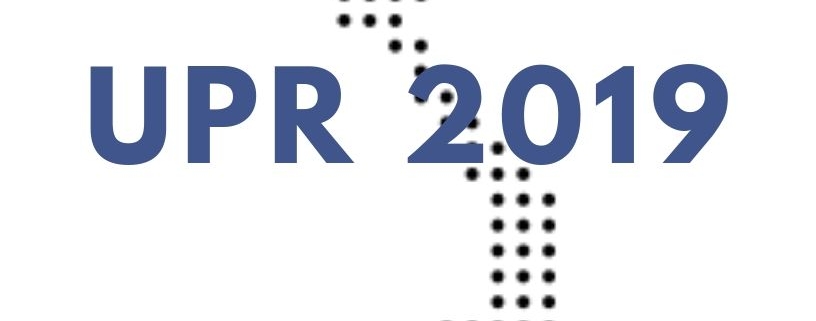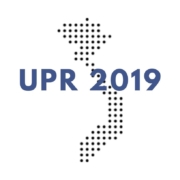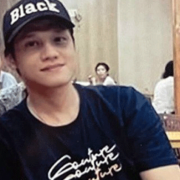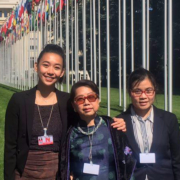Vietnam’s UPR Commitments on Freedom of Expression: Promises and Suggested Actions – Part 2
Part 2: Substantive Commitments to Freedom of Expression
There are not many accepted recommendations directly concern with freedom of expression. These limited recommendations still need to be examined and monitored carefully to make sure that the promises do not get lost in vain.
1. Recommendations no. 168 and 184 on freedom of opinion and freedom of expression, including online freedom
In recommendations no. 168 and no. 184, France encouraged Vietnam to “take steps to guarantee freedom of opinion and freedom of expression, including on the Internet, in the context of the adoption of the law on cybersecurity.” Iceland, on the other hand, asked the government to “lift restrictions on freedom of expression, and particularly online freedom, in line with Viet Nam’s obligations under international law.” These plain-looking statements play important roles in dealing with the vagueness and arbitrariness of most laws relating to freedom of expression in Vietnam. Until this point, it is safe to say that all Vietnam’s legislations are willingly antagonizing its own netizens and citizens. The restriction on freedom of expression is not just an exception, it is the purpose of these laws. It shows very clearly in Article 4.4 of the Law on Cybersecurity (and many other laws, including the Criminal Code) with its “guiding principles”: “To actively identify, prevent, intercept and defeat any activities using online space to invade national security, danger order and safety of the public, violate the legitimate rights and interests of public agency, organisation and individuals.” Those “principles” reserve the authority to intervene in the practice of freedom of expression to anyone at anytime they want, by including “public agency, organisation and individuals” and offering no explanation or limitation. And any slightly controversial or confrontational idea or criticism could be considered law-breaking as long as the government deems necessary. For instance, Vingroup – the rising economic empire with close ties to the regime has utilized this type of provision to make sure that no exposure of their negative or questionable business activities can appear online. Casually criticizing a provincial leader could also result in a fine, not to mention imprisonment. The acceptance of the recommendations means that Vietnamese government has to substantively create a legal framework to make sure such abuse cannot occur.
The Vietnamese State can fulfill recommendations no. 168 and no. 184 by:
(1) Establishing an exhaustive list of national security violations, in line with the test of proportionality, necessity, and particularity as set out by General Comment no 34 and the Siracusa Principles;
(2) Issues concerning “legitimate rights and interests of public agency, organisation and individuals” in any law shall be settled by civil procedure.
2. Recommendation no. 172 on developing measures to protect journalists from all forms of discrimination and violence
With Recommendation no. 172, Vietnames government agrees to “develop measures to protect reporters and journalists from all forms of discrimination and violence”. There are two major problems with the acceptance: the definition of “reporter” and “journalist,” and the irony of such commitment. Due to the monopoly of the state on media’s control, not every person participating in the news-reporting, news-investigating activities can be called journalists/reporters or at least can share such umbrella protection unless they are licensed by the government – a practice that is contrary to every international norm concerning journalism. This discrimination prompts the concept of “independent journalist” or “blogger,” who have been harassed and persecuted for over two decades. Yet, ironically, even “legitimate” journalists are not safe in this environment where reporting on corruption could result in their imprisonment. The government, therefore, is the biggest source of discrimination and violence against journalists. By accepting this recommendation, Vietnam has to take steps to eliminate this disturbing reality.
The Vietnamese State can fulfill recommendation no. 172 by:
(1) Allowing the establishment of representative offices of international journalist organisations such as Committee to Protect Journalists (CPJ) or Reporters Without Borders (Reporters Sans Frontières – RSF);
(2) Devolving the authority to grant Press cards to news agency;
(3) Taking steps to recognize independent associations of journalists.
3. Recommendation no. 186 on regulations of civil society organizations
In Recommendation no. 186, Ireland discussed two different important developing legal issues: regulations on civil society organizations and national security provisions. Contemporary legal framework on association in Vietnam is extremely narrow and restrictive. By Decree no. 45/2010/ND-CP, the establishment of any new, independent association is practically impossible with the infamous “double doors” requirement (a Committee on the establishment of the association shall be recognized by the competent authorities before they can apply for the formal registration procedure) and “differentiable” requirement (the application will be rejected if the association’s objectives or its scope of activities is similar to an existing association – this requirement is intended to create a monopoly in the civil sphere for state-controlled associations). Additionally, the national security provisions in various legislations, especially the 2004 Law on National Security, are outdated and do not meet the legal clarity standard required by the regime’s commitment to international documents.
The Vietnamese State can fulfill recommendation no. 186 by:
- Accelerating the drafting process of the law on association;
- Legalizing the right to form association without state’s intrusive interventions and procedures.
4. Recommendation no. 194 on abolishing prior censorship
Finally, in recommendation no. 194, the Communist regime surprisingly accept to “abolish prior censorship in all fields of cultural creation and other forms of expression, both online and offline.”
Prior censorship – or usually known as “prior restraint” – is not yet a universal law concept. While international instruments such as ICCPR do protect freedom of expression, the implementation of such right still heavily relies on the interpretation of party states. Prior restraint, on the other hand, is an old legal doctrine of British common law, interpreted to oppose licensing and other forms of prior restraint of speech and press. The doctrine emerged and became a right phenomenon after the U.S. Supreme Court issued Near v. Minnesota (283 U.S. 697, 1931), reaffirming the guarantees of the First Amendment of the U.S. Constitution by striking down the Minnesota Public Nuisance Abatement Law that barred the publication of malicious or defamatory materials. Prior censorship could be materialized by laws that grant the authorities excessively broad discretionary powers to limit expression with indirect methods or means such as the abuse of government or private controls over newsprint and radio broadcasting frequencies, or using press license and administrative barriers to prevent the establishment of independent news outlet. These characteristics are, however, the bedrock of Vietnamese State’s censorship philosophy.
The Vietnamese State can fulfill recommendation no. 194 by:
(1) Completely overhauling the legal system concerning censorship including but not limited to the Law on Publication 2013, Law on the Press 2016, Law on Cybersecurity 2018, Law on Communication 2009, and Law on Information Technology… to ensure that an interference with freedom of expression is only legitimate if:
- it is provided by law;
- it pursues a legitimate aim; and
- it is “necessary in a democratic society”;
subjected to the international standards.
(2) Inviting the sitting U.N. Special Rapporteur on Freedom of Opinion and Expression to review and report on their efforts;
(3) Ensuring that any censorship attempt must go through judicial review or an independent panel of experts.
Conclusion
As Vietnam government’s UPR practices suggest, the above recommendations are specifically chosen for the fact that they allow the government to interpret and set out evaluating standards at their own will. Similarly, due to the vagueness of the recommendations, it is very unlikely that there is anything that can pressure the regime to fulfill any of the recommendations in the UPR midterm review (or even the next cycle). Evidently, the government has yet to announce any specific timeframe to work on these recommendations.
Our analysis above suggests that the recommendations, albeit vague, can produce substantive changes if they are taken seriously. Any commitment that only takes administrative effort to fulfill should be completed before the next midterm review. For instance, some of our suggested actions to implement recommendation no. 147 such as “Amending Circular 03/2018/TTLT-BCA-VKSNDTC-TANDTC-BQP to make sure that interrogation without recording devices can only be proceeded with the presence of the detainee/defendant’s attorney” and “Organizing workshops and educational sessions specializing in CAT and other potential acts of torture for public security forces and investigators” should be reported in the midterm review.
Other demanding actions that require systematic review or the involment of legislative bodies such as “Defining ‘Torture’ in accordance with CAT and other related cases of the Committee in major legislations, especially the Criminal Penal Code, Criminal Procedure Code, and the Law on Custody and Detention 2015,” “Amending the Law on Custody and Detention to ensure the right to visit detainee/defendant once per month without any exception,” and “Incorporating provision that the death of detainee shall render unconditional responsibility of the supervision, unless proved otherwise” should be thoroughly reviewed at the next UPR cycle.
NTTQ
© 2019 The 88 Project










